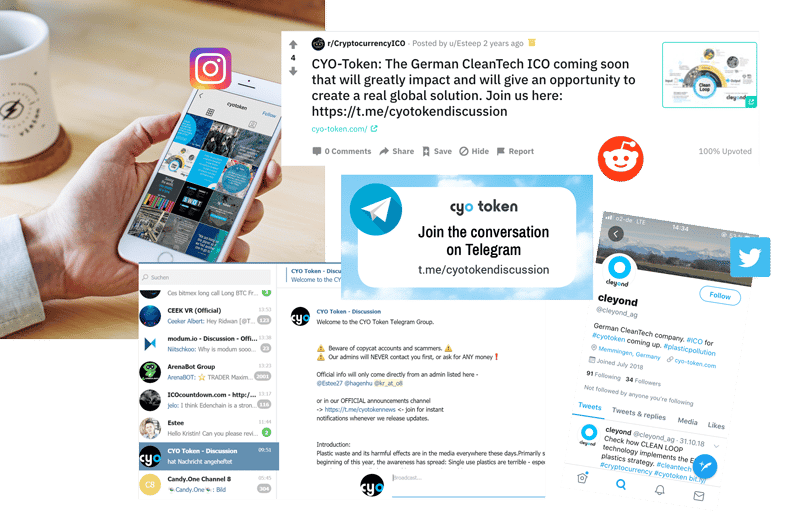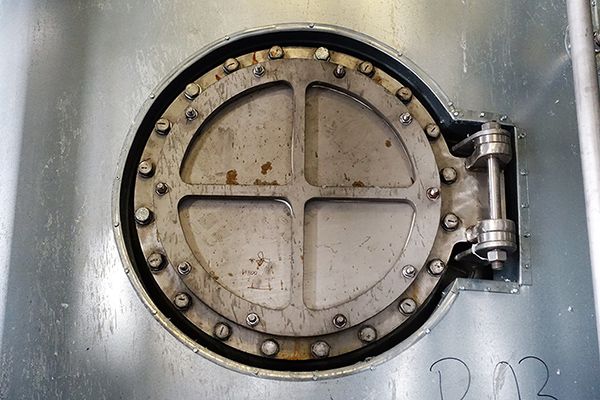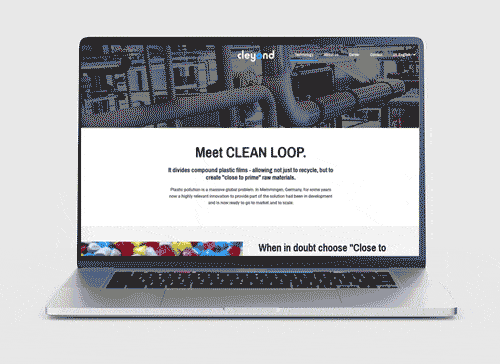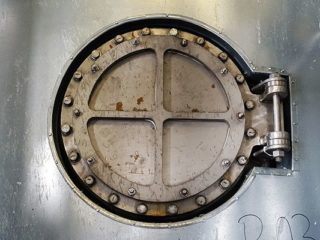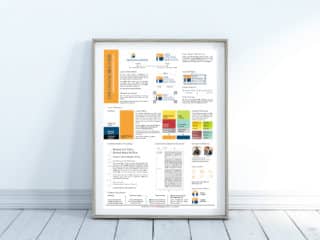Our Starting Point
A B2B company offering a highly innovative recycling technology.
Their prototype is close to being released to the market. Next steps: get ready to approach investors and prepare to enter the market.
OVERW8 helps them with:
Business Model Tuning
At the beginning of 2018, one thing is clear: The amount of plastic waste in our oceans is constantly growing, and is reaching threatening dimensions.
If this plan can be implemented successfully, then
Cleyond could become the cleantech partner for businesses recycling about 28,000 tons of plastic each year.
This is a seller’s market (companies will become responsible for their own plastic waste), and a cost-effective and sustainable solution such as Clean Loop Granules would become highly attractive.
When we started, however, one thing was not really clear: What do they actually do? What exactly is it good for and why? And how does it actually plug into the market?

(Setting) Their Goals
Their high-end industrial facilities and their got-to-market would require an investment worth millions of dollars.
The owners wanted to follow two approaches at the same time and:
a) play the game traditionally pitching their idea with presentations etc. and
b) going the innovative extra mile with a so called ICO (case study in the making).
Starting like Warren Buffet: Visiting the facility
Initially, the business model was still somewhat vague: The message sounded good, but everything was a bit complicated. Kristin, the CEO of o8, met with CEO Andreas Nold and the management team on-site in Memmingen.
There, she had the opportunity to talk to the team and find out how things have developed so far and what was planned for the future.

First of all, however, they showed Kristin the facility and the first test results (a granulate that already performed well, but was still too impure) and explained how the technology had evolved as a result of the work done by a preceding company and a co-operation with Fraunhofer Institute.
Now it was clear what it was all about:
A clean way to recycle industrial plastic films that the food industry is constantly leaving behind, producing so-called close-to-prime granulate. Right! A clean way …
Market Research
A business model or technology that the founders think is great is one thing – but how does that resonate with the market? Does the market actually want what is being offered? Is it just the owners – or is the world ‘out there’ also aware that it needs what they offer and why it’s really needed?
Further research led us to the European strategy for plastics launched by the EU in Strasbourg on January 16 under which companies producing plastic waste would be required to provide a solution to this problem.
What became clear was that a clean solution would also help solve the massive global plastic waste problem. Furthermore, the business model should also allow rapid scaling.
We were now in February, which meant that the ‘plastic issue’ – the negative impact of plastic waste carelessly thrown away or not properly disposed of – might become a trending topic.
So, both the brand’s positioning and communication had to leverage this topic supporting cleyond’s message as effectively as possible.
Positioning
We started by labelling their business model – which had previously appeared rather complicated – in a clear way with two trending keywords “Circular Economy” and “CleanTech”.

Pitching Materials:
A pragmatical approach for the first version
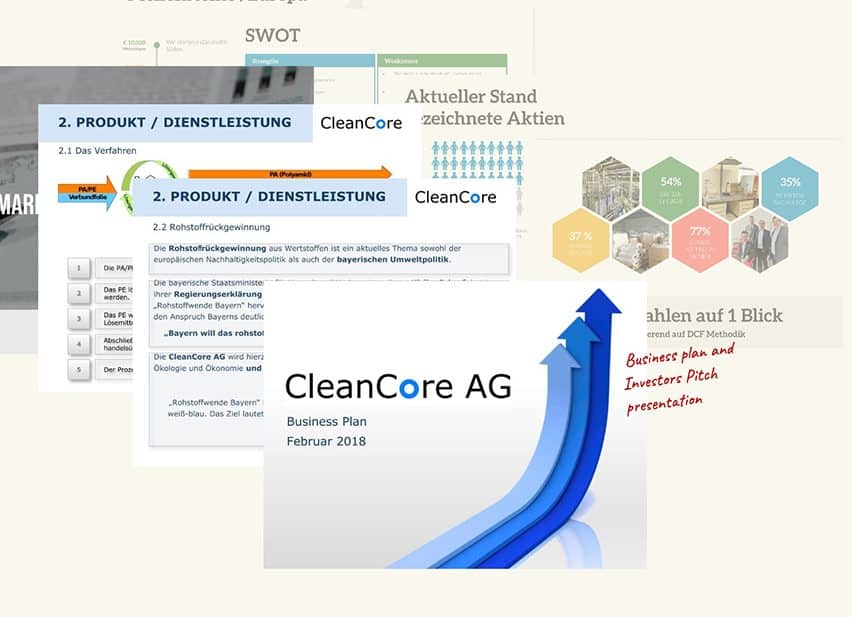
The first meeting with a prospective investor took place only a few days later. As a first step, we used a slick template for presentation and transformed their existing content from a rather number-focused report to an actual story.
Only later we developed their CI and optimized the look of their presentation, making their professionalism and global ambition much clearer.
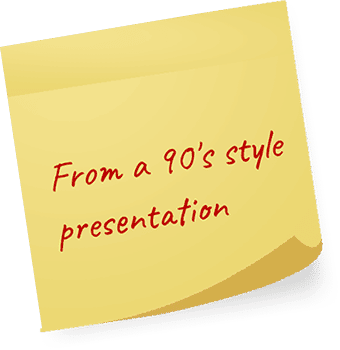
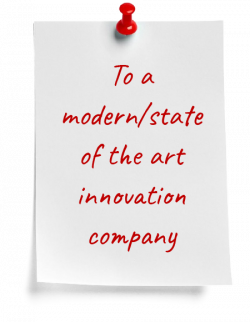
Naming:
Upgrading to new goals
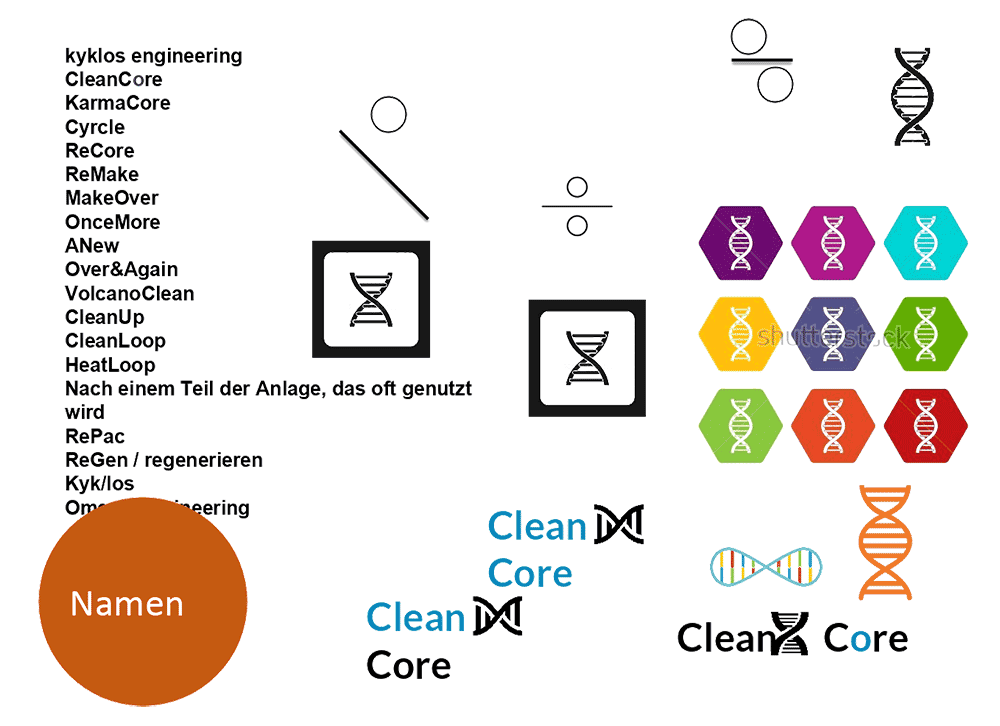
Further exploring the opportunities offered by the business model we turned to licensing to enable a rapid global expansion. During this process, we realized that the initial brand name ‘Cleancore’ would not be appropriate anymore.
Therefore a new brand name was developed, designed and trademarked: cleyond.
Then we created a slogan:
A Scalable Solution to a Global Problem: Plastic Waste
And we laid the basis for communicating on a much more international level.
Naming the Technology
Pitching the idea revealed that there was another pitfall irritating who listened to it:
The product and technology didn’t have a proper name.
Besides, non-experts (and it’s very likely that most investors aren’t that acquainted with cleantech) and anyone who couldn’t directly visit the Memmingen plant (when sending out the pitching materials, for example) would find it difficult to imagine how the whole thing actually works.
The Power of Infographics
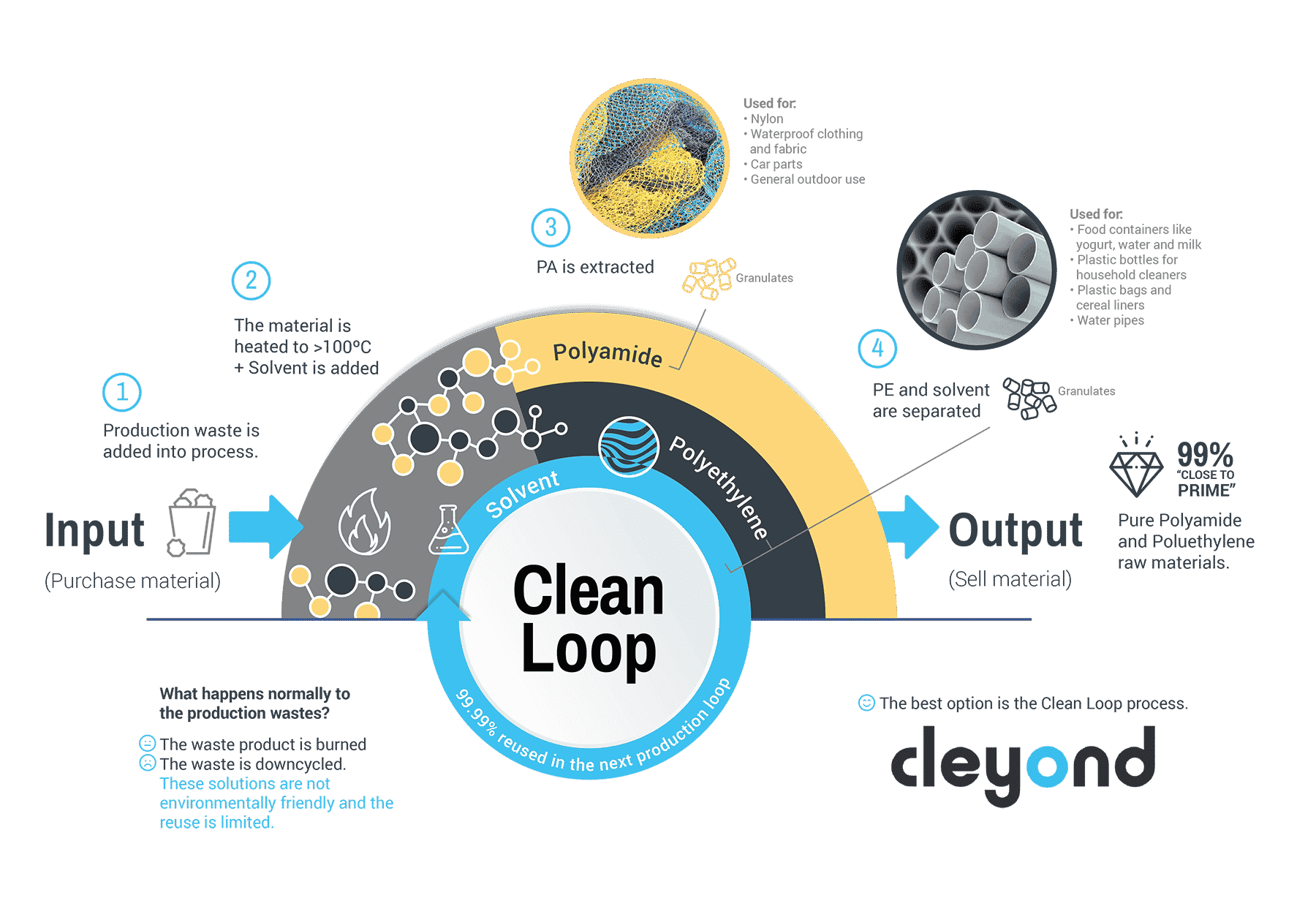
This infographic became the centrepiece of cleyond’s communication.
The infographic presents a simple yet accurate overview of the process and its benefits – obviously, it has been approved by the developers.
And instantly, while listening to long-winded explanations, the only thing you need to do is to let them focus a moment on the slides – and they will begin to nod.
Mission: (Partly) Accomplished
Marketing Strategy
Iterative Brand Development

Like many B2B companies, cleyond did not realize at the beginning how helpful a neat implementation of their innovation and business model would be.
As a result, we carefully ‘upgraded’ their strategy, step by step: from the first PPT elements to a personalized premium visual identity.
A consistent Visual Approach
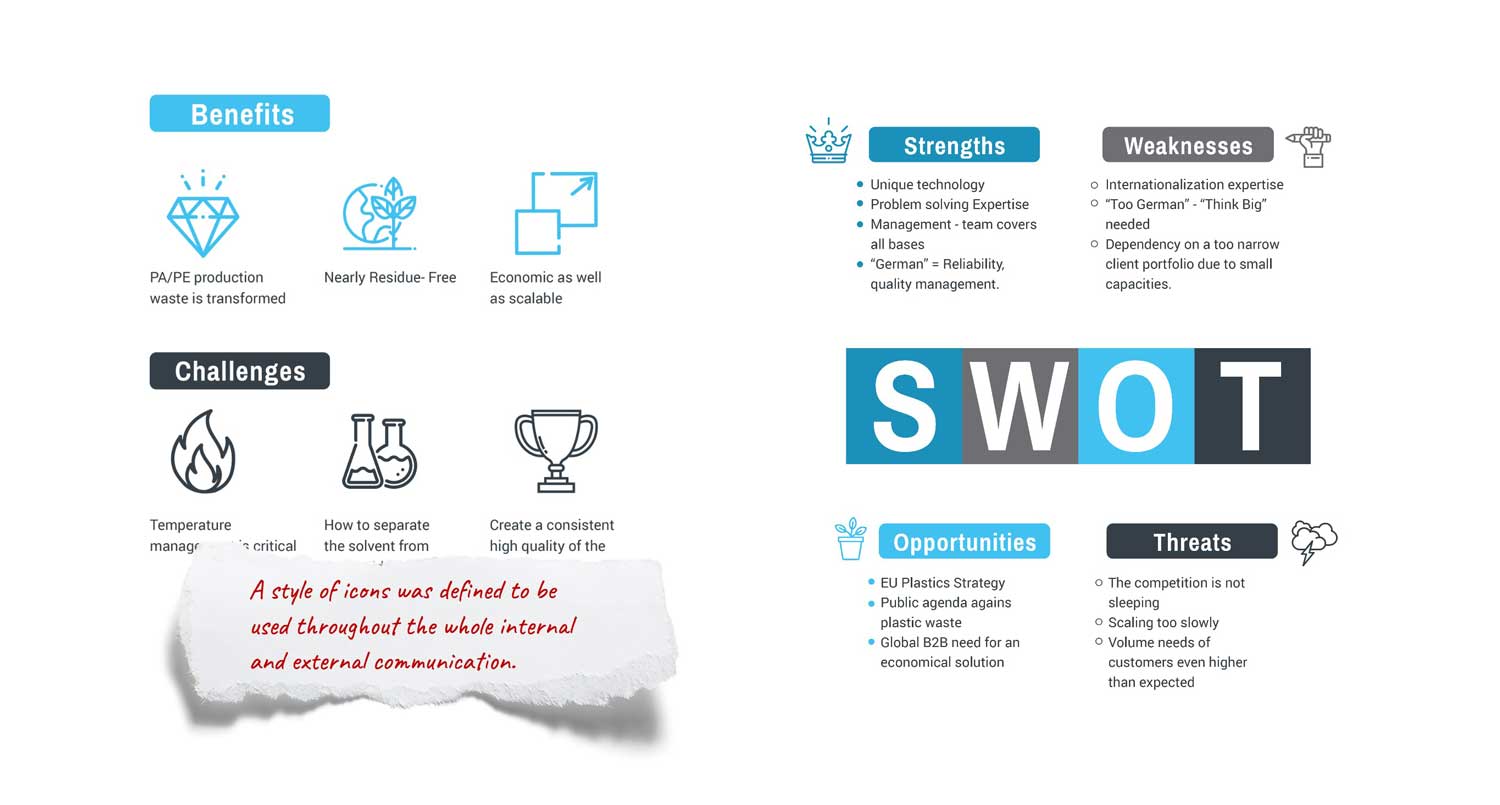
The added value provided by visual communication emerged step by step. We started by ordering oversized images illustrating their project for their conference room:
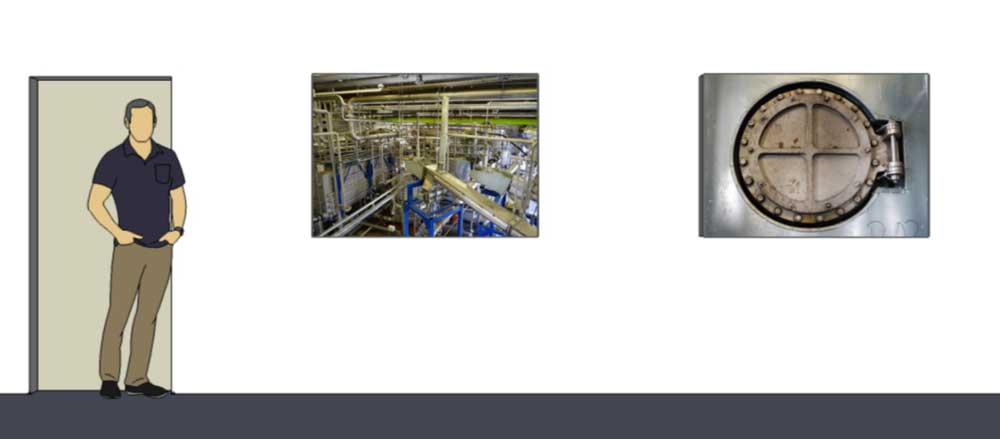
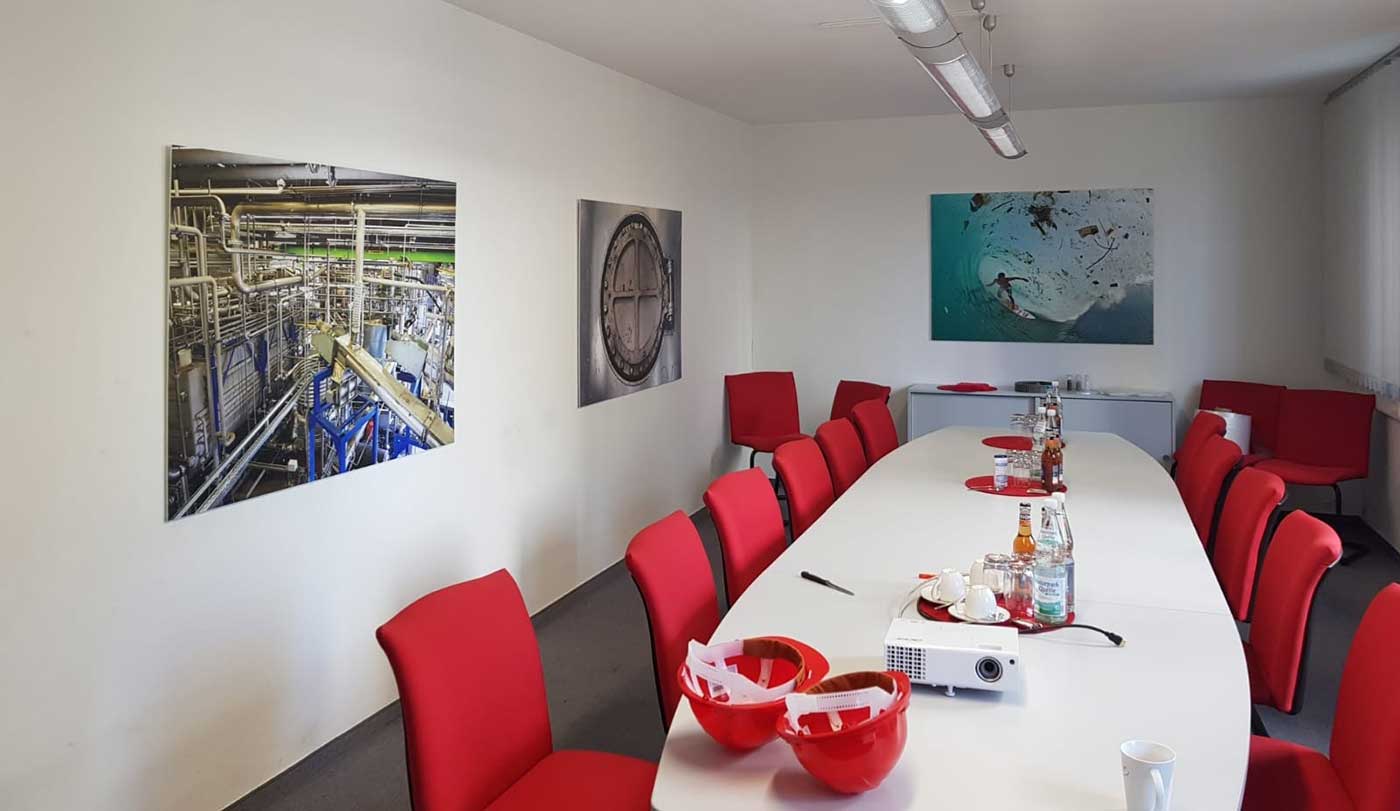
Photo courtesy of cleyond.
Branding
Only later, we combined these elements into a single manual:
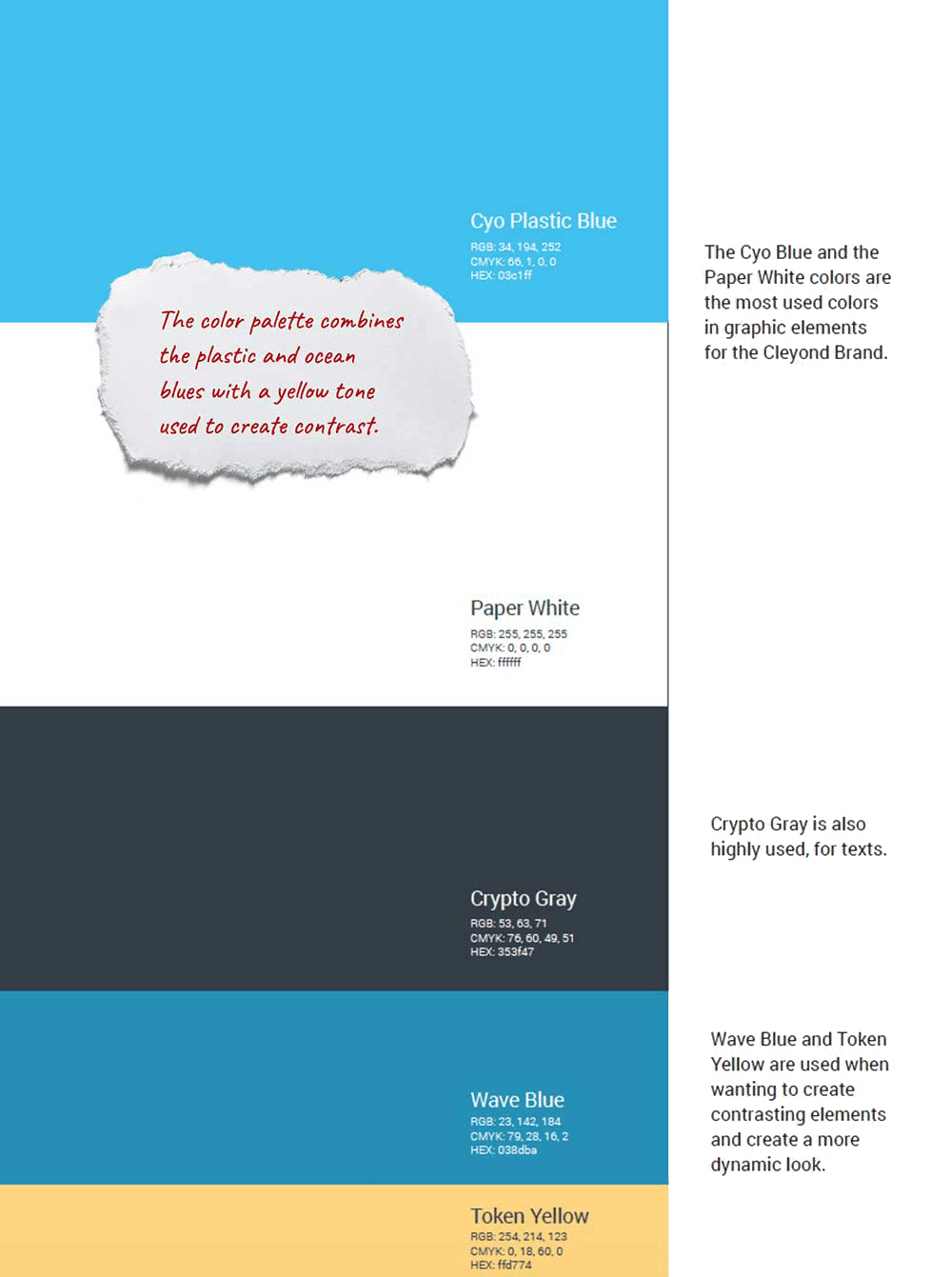
Brand Manual:
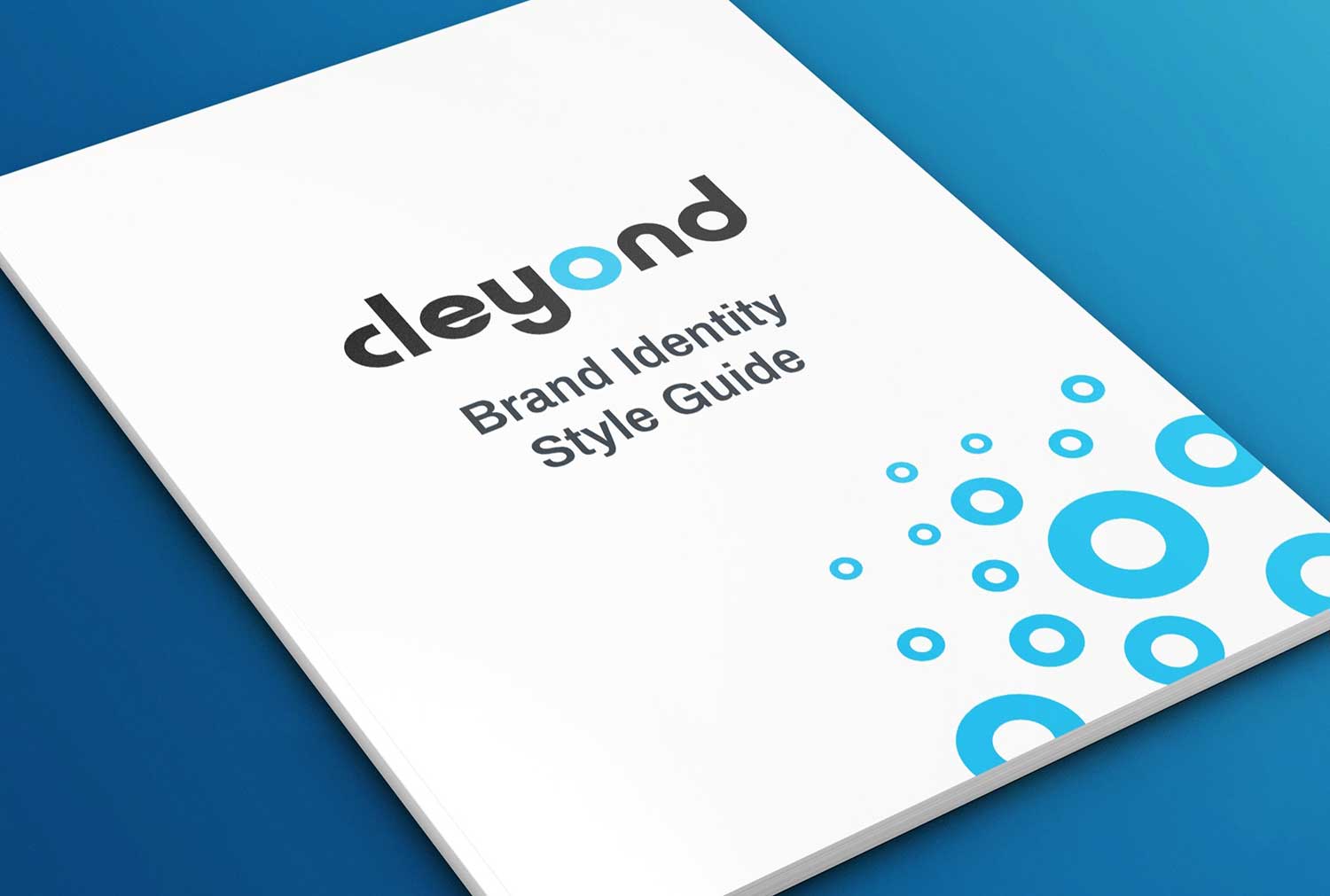
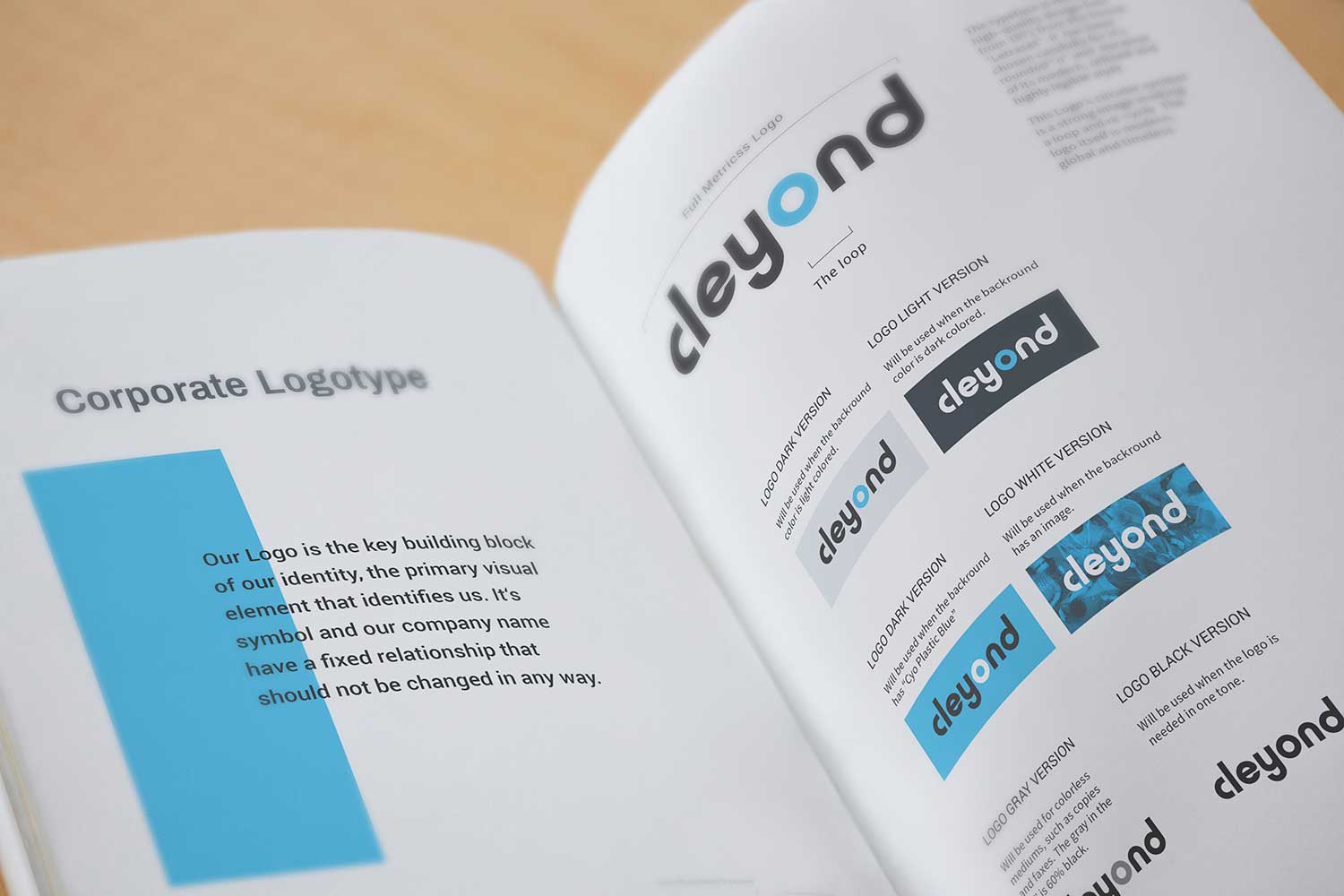
Time to get out there!
Go-To-Market
Collaterals & Sales Material
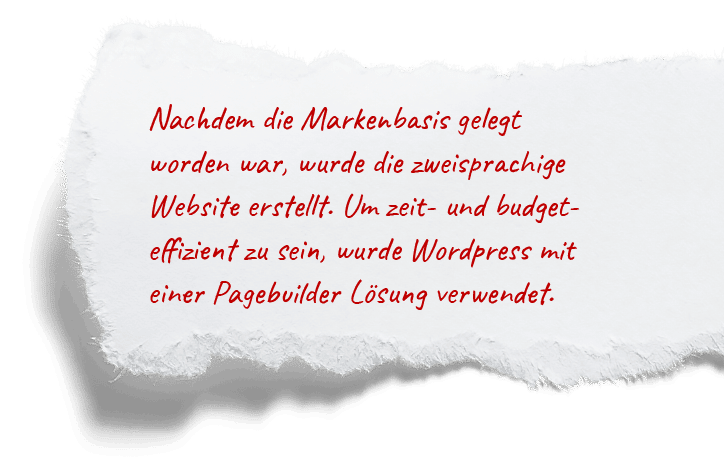
“Do we really need to use English all that time?”
The management team had strong roots in Germany, their working language was German – with an occasional Swabian flavor. While they were a little hesitant about communicating in English, everyone was aware that this was THE language money speaks when it comes to investments. Obviously, not everyone has to speak it like a British Lord – but English is clearly the common ground for communication.
Having all the relevant sales materials both in German and in English would definitely open the doors to new opportunities – worldwide.
Social Media
